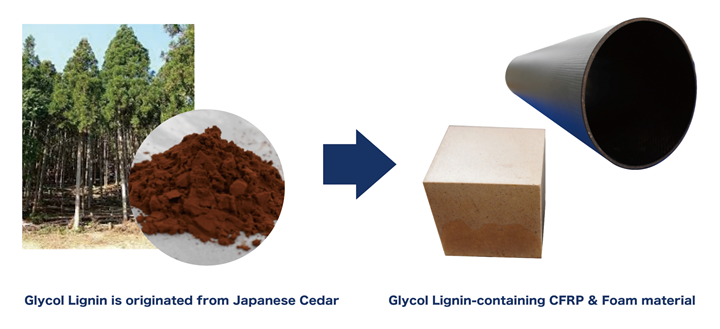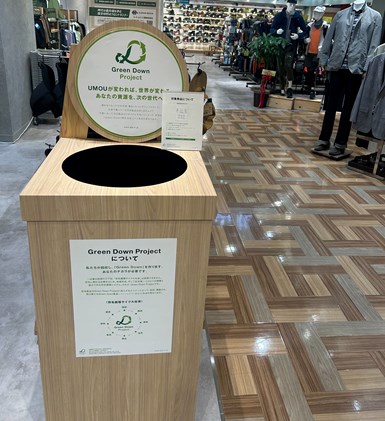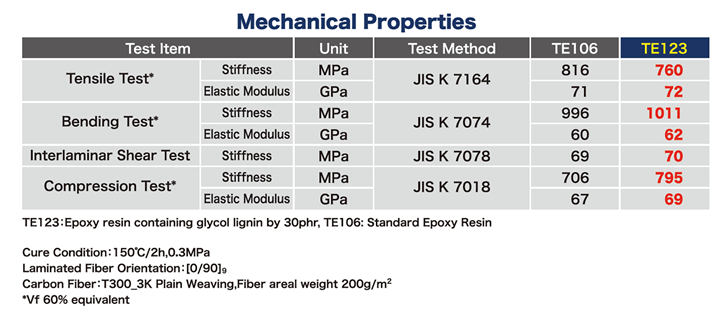Super Resin Inc. highlights plant-based epoxy resin, foam core
Eco-friendly resin system using glycol lignin offers an eco-friendly option for CFRP structures and components, and core materials.
Share
Fiber-reinforced polymer (FRP) molding company Super Resin Inc. (Tokyo, Japan) has developed an environmentally friendly epoxy resin system for use in carbon fiber-reinforced polymer (CFRP) materials that aligns with sustainable development goals.
Super Resin’s matrix system is a blend of glycol lignin derived from Japanese Cedar and epoxy resin, resolving both the issue of reduced mechanical properties — common when mixing epoxy resins with additives for use in CFRP — and the use of environmentally friendly substances.
Recently, Super Resin introduced a recycling box for damaged clothes, and the box itself is made from glycol lignin-containing epoxy resin CFRP (right). This is just one example of the many things Super Resin can produce with this material.
Prepreg made with the glycol lignin-containing epoxy resin systems has also shown some distinctive characteristics. For example, compared to conventional prepreg, which needs to be stored frozen to inhibit the curing reaction of the resin, prepreg using this resin system shows potential for long-term storage at room temperature, contributing to the reduction of power consumption during material storage.
Super Resin also has developed a proprietary technology for foaming epoxy resin, which has been applied to develop closed-cell, rigid foam, made from 100% glycol lignin, which is useful as core material for sandwich panels.
For more information, please contact Akihiko Nogiwa, Kyokuto Boeki Kaisha, Ltd. (nogiwa@kbk.co.jp).
Related Content
-
Infinite Composites: Type V tanks for space, hydrogen, automotive and more
After a decade of proving its linerless, weight-saving composite tanks with NASA and more than 30 aerospace companies, this CryoSphere pioneer is scaling for growth in commercial space and sustainable transportation on Earth.
-
PEEK vs. PEKK vs. PAEK and continuous compression molding
Suppliers of thermoplastics and carbon fiber chime in regarding PEEK vs. PEKK, and now PAEK, as well as in-situ consolidation — the supply chain for thermoplastic tape composites continues to evolve.
-
Sulapac introduces Sulapac Flow 1.7 to replace PLA, ABS and PP in FDM, FGF
Available as filament and granules for extrusion, new wood composite matches properties yet is compostable, eliminates microplastics and reduces carbon footprint.






